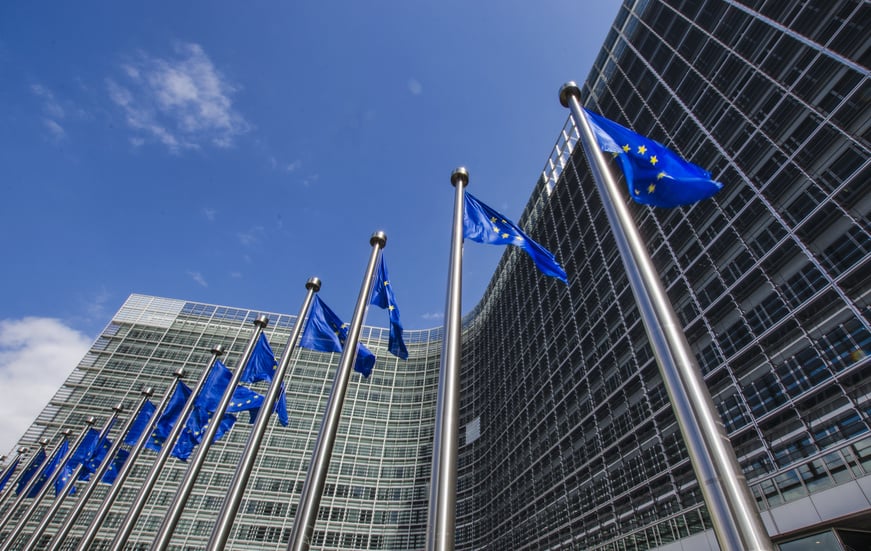The EU has finalized measures to simplify and delay the application of key sustainability regulations, providing businesses with greater clarity and planning certainty. The changes follow the Omnibus package introduced earlier in 2025 and include amendments to the Corporate Sustainability Reporting Directive (CSRD), Corporate Sustainability Due Diligence Directive (CSDDD), and related frameworks. The EU Parliament approved the amendments, and EFRAG released revised European Sustainability Reporting Standards (ESRS) to streamline reporting obligations. Updates to the EU Taxonomy, adopted in July 2025, will apply from January 2026, and targeted simplifications and delays to the EU Deforestation Regulation (EUDR) were also endorsed.
On 9 December 2025, the European Parliament and Council agreed on the EU Deforestation Regulation (EUDR), which aims to prevent products linked to deforestation from entering or leaving the EU market.
The Regulation introduces a due diligence system requiring operators and traders to ensure products are “deforestation-free,” provide geolocation data, and submit compliance statements. Non-compliance may result in fines of up to 4% of EU turnover. The main obligations will apply from 30 December 2024.
On 23 September 2025, the EU Environment Commissioner proposed delaying the EU Deforestation Regulation (EUDR) by another year due to IT system challenges. Originally set for 30 December 2025, the compliance deadline may be extended to 30 December 2026. The delay aims to reduce uncertainty for authorities and stakeholders and ensure the IT infrastructure can handle operational demands. Further discussions among EU institutions are expected before a formal announcement.
On 23 September 2025, the EU Environment Commissioner proposed delaying the EU Deforestation Regulation (EUDR) by another year due to IT system challenges. Originally set for 30 December 2025, the compliance deadline may be extended to 30 December 2026. The delay aims to reduce uncertainty for authorities and stakeholders and ensure the IT infrastructure can handle operational demands. Further discussions among EU institutions are expected before a formal announcement.
Until recently, the EU lacked a specific framework governing green claims. A new Directive aiming at “empowering consumers for the green transition” supplements the existing rules on unfair commercial practices to include a new harmonized regime for green claims, applicable from September 2026. Businesses should carefully consider how this new regime will impact their upcoming commercial communications, including voluntary environmental reports and climate targets, to mitigate legal and reputational risks.
In February 2025, the European Commission presented its “Omnibus” package aiming to delay application as well as simplify certain obligations under the CSRD, CSDDD and the EU Taxonomy with the ultimate goal of reducing administrative burden and thus addressing concerns that the rules would hamper European competitiveness (see our summary of the Omnibus here). Following the approval of the “stop the clock” Directive, which delays application of the CSRD and CSDDD for certain companies, the EU institutions are now focusing efforts on the substantive proposal to simplify and streamline certain obligations under these rules. In parallel, the EU Commission is also working to publish updates to the EU Taxonomy.
Companies are navigating a shifting ESG and sustainability regulatory landscape across Europe and the US. The session opened with an overview of deregulatory trends in Europe, including the Omnibus package, evolving CSRD and CSDDD obligations, and the EU Deforestation Regulation. In contrast, the US discussion highlighted the rise of the anti-ESG movement at the federal level, set against California’s continued push for climate disclosure laws impacting both public and private companies.
Our popular Annual Compliance Conference, which attracts senior in-house legal and compliance professionals every year from across the world, will be held virtually from 3 to 12 June 2025.
The conference will provide you with valuable insights from our international trade, compliance and investigations, regulatory and antitrust lawyers. We will delve into critical topics shaping the future of global businesses such as sanctions, export controls, customs and tariffs, national security laws, antitrust, product regulation, ESG and related enforcement trends.
In February 2025, the EU Commission introduced the Omnibus Simplification Package to streamline sustainability regulations. This package includes two proposed Directives: the “Stop-the-clock” Directive, which proposes delaying the CSRD and CSDDD compliance timelines, and a second Directive that suggests substantive changes to both the CSRD and CSDDD. The “Stop-the-clock” Directive is now close to being approved, giving businesses more certainty on the timeline for compliance.







